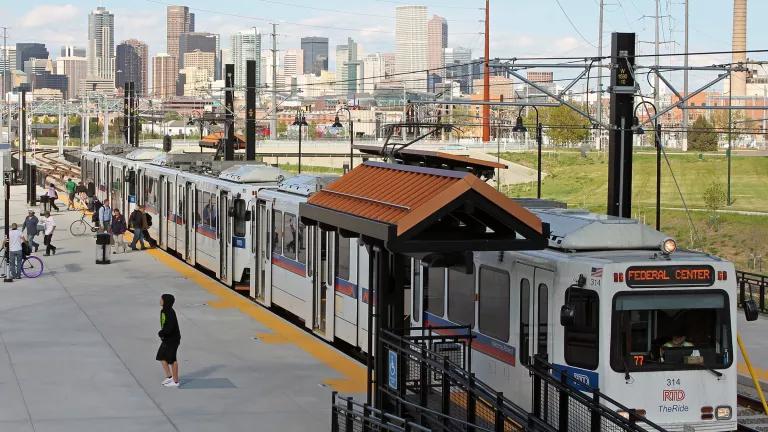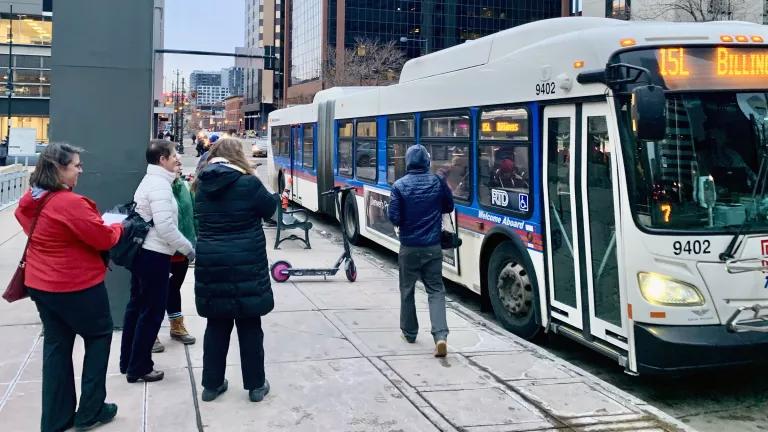Missed Opportunity as EV Charging Bill Is Vetoed in Colorado
In a disappointing move amid an otherwise positive legislative session for transportation, air quality, and climate, Governor Polis vetoed a bill that would have expanded EV charging for Coloradans.

Electric vehicle charging spaces in a garage
In a disappointing move amid an otherwise positive legislative session for transportation, air quality, and climate, Governor Jared Polis vetoed a bill that would have expanded electric vehicle (EV) charging for Coloradans. The legislation, House Bill 22-1218, would have ensured that new buildings and major renovations had the electrical wiring and capacity to host future electric vehicle charging stations. Critically, the bill would’ve expanded access to EV charging in multifamily housing, a major barrier to expanded EV ownership across the state.
EV-readiness requirements, whereby buildings are constructed in a way that is ready for EV charging, are the most cost-effective way to meet our future charging needs. Running the proper electrical wiring during construction and planned retrofits is far cheaper than having to add the infrastructure later. Analysis from California found that installing EV charging in multifamily housing or nonresidential buildings after construction can be up to eight times more expensive compared to doing it during the development or alteration phases. A study from PG&E also showed that 75 percent of EV retrofit costs would’ve been avoided if EV readiness had been included during initial construction of parking spots.
Ensuring access to EV charging is also a critical issue for transportation equity. Whereas people living in single-family homes are more likely to have access to a garage or outlet to facilitate charging, those living in multifamily housing face much higher barriers to adopting electric vehicles due to a lack of charging options. People living in those units deserve to reap the benefits of EVs, including lower maintenance and operational costs and reduced air pollution. By expanding access to charging in apartments, condos, and other multifamily housing while the building is being constructed, residents of those buildings will gain access to charging and can more easily join the EV revolution.
Coloradans are eager for the EV transition, buying record numbers of EVs in recent years, even despite supply chain challenges. Governor Polis also has ambitious goals for the state, aiming to have at least one million light-duty EVs on the road over the next eight years—that’s nearly one EV for every two households in the state. Most of those people will prefer to do nearly all of their charging at home—but how? Unless we equip our homes with EV-charging capabilities, we will not be able to meet these critical goals. Even as we make advancements in EV technology with more efficient and affordable cars with longer-range batteries, they will all need this basic electrical infrastructure.

A resident in Denver charging their EV via an extension cord out of their mailbox
Fortunately, more than a dozen municipalities and counties around the state have already taken leadership with EV-readiness requirements to help ensure that people living and working in their communities have access to charging. NRDC will continue to encourage more cities to follow suit, and we look forward to working with state leaders on new legislation next year so that, no matter what community or type of housing you live in, you, too, can benefit from all that electric vehicles offer.




